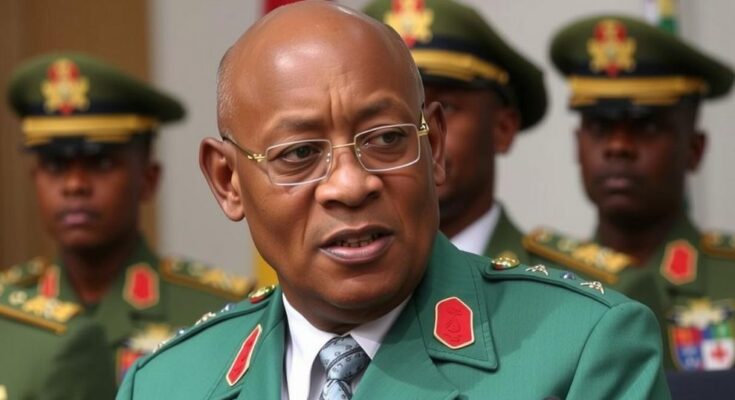Chad’s elections, encompassing legislative, provincial, and local votes, are boycotted by opposition parties, allowing ruling candidates to dominate. Criticism of electoral integrity is prevalent, heightening suspicions of fraud amidst a backdrop of security concerns and political repression.
Chad is conducting legislative, provincial, and local elections on Sunday, marking the concluding phase of a political transition following three years of military governance. However, the elections are being boycotted by opposition parties, notably allowing candidates allied with Marshal Mahamat Idriss Itno to dominate the political landscape. Critics have voiced concerns over the legitimacy of the electoral process, with accusations of electoral fraud stemming from last year’s presidential election.
Opposition leader Succes Masra publicly denounced the current regime, advising citizens that participating in the elections was futile. He characterized the political structure as one built on falsehood and electoral malpractice, sharing concerns over alleged ballot misappropriations, particularly in Bongor. Amidst potential terror threats, including attacks from Boko Haram, and a backdrop of growing tension with France, the electoral process proceeds under heavy scrutiny from both local and foreign observers.
Mahamat Idriss Itno, who ascended to power in 2021 following the death of his father Idriss Deby Itno, has embarked on a controversial leadership journey marked by allegations of growing autocracy. With the last legislative elections occurring in 2011, and subsequent elections stalled due to various crises, the political climate in Chad remains critical as the country confronts both internal and external pressures.
Chad has been under military control since the death of long-time leader Idriss Deby Itno in 2021, leading to the establishment of a transitional government. Marshal Mahamat Idriss Itno has faced ongoing criticism for his administration’s approach to governance and alleged electoral malfeasance, particularly during the presidential elections held last May. This electoral cycle represents an essential juncture for Chad’s transition back to democratic rule, amidst accusations of political oppression and calls for transparency from opposition forces.
In conclusion, Chad’s upcoming elections signify a crucial point in the nation’s struggle for democratic governance following years of military rule. However, the boycott by opposition parties raises significant questions regarding the legitimacy of the electoral outcomes. As Marshal Mahamat Idriss Itno’s administration faces scrutiny for alleged abuses and electoral fraud, it remains to be seen how the political landscape will evolve in the aftermath of these elections.
Original Source: www.barrons.com




